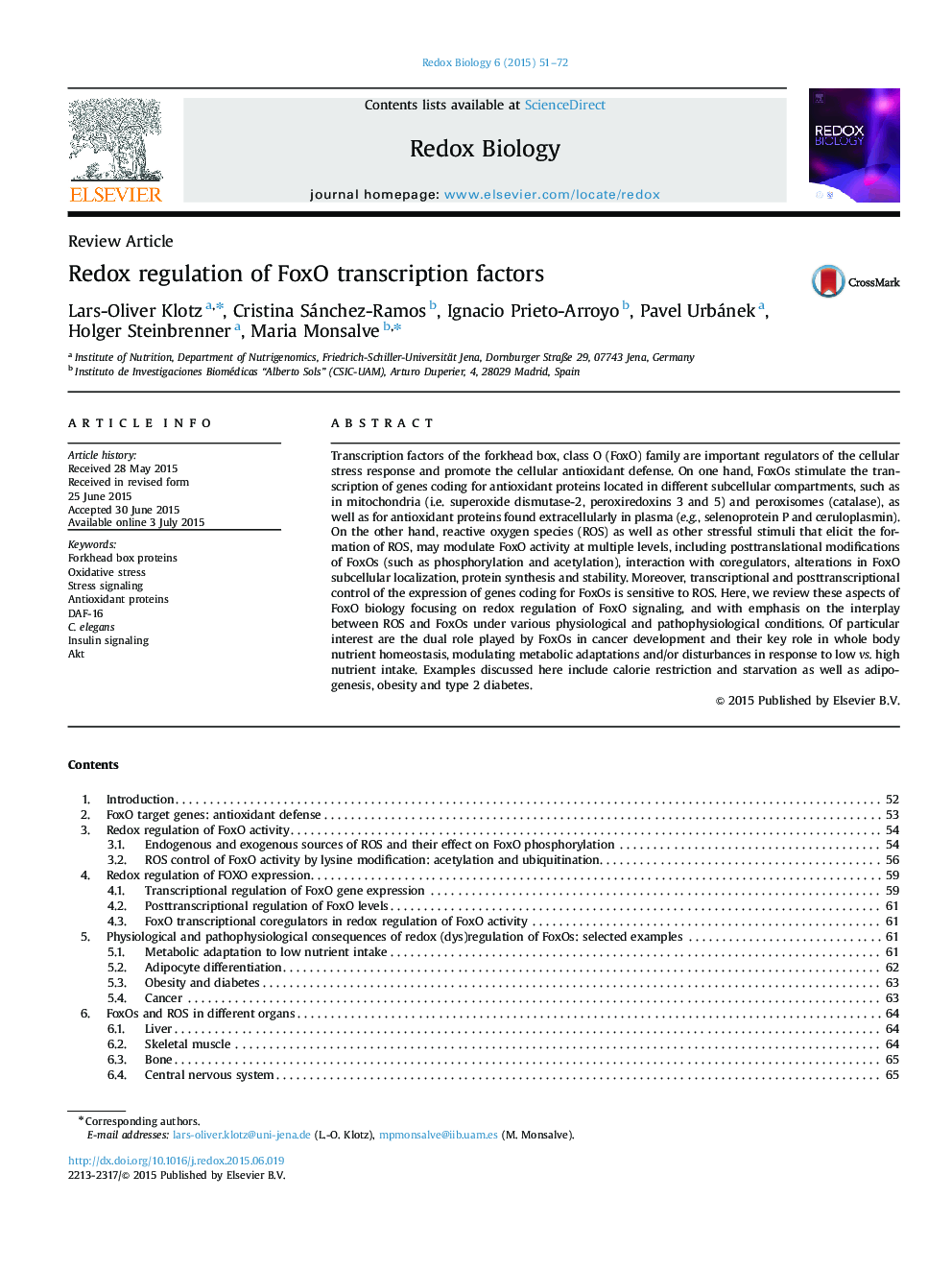| کد مقاله | کد نشریه | سال انتشار | مقاله انگلیسی | نسخه تمام متن |
|---|---|---|---|---|
| 1922896 | 1535844 | 2015 | 22 صفحه PDF | دانلود رایگان |
• FoxO transcription factors are regulators of metabolism and antioxidant defense.
• Stressful stimuli, including oxidative stress, modulate FoxO activity.
• FoxO activities are regulated by posttranslational modifications.
• FoxO levels are controlled transcriptionally and post-transcriptionally.
• Redox dysregulation of FoxOs contributes to the development of metabolic diseases.
Transcription factors of the forkhead box, class O (FoxO) family are important regulators of the cellular stress response and promote the cellular antioxidant defense. On one hand, FoxOs stimulate the transcription of genes coding for antioxidant proteins located in different subcellular compartments, such as in mitochondria (i.e. superoxide dismutase-2, peroxiredoxins 3 and 5) and peroxisomes (catalase), as well as for antioxidant proteins found extracellularly in plasma (e.g., selenoprotein P and ceruloplasmin). On the other hand, reactive oxygen species (ROS) as well as other stressful stimuli that elicit the formation of ROS, may modulate FoxO activity at multiple levels, including posttranslational modifications of FoxOs (such as phosphorylation and acetylation), interaction with coregulators, alterations in FoxO subcellular localization, protein synthesis and stability. Moreover, transcriptional and posttranscriptional control of the expression of genes coding for FoxOs is sensitive to ROS. Here, we review these aspects of FoxO biology focusing on redox regulation of FoxO signaling, and with emphasis on the interplay between ROS and FoxOs under various physiological and pathophysiological conditions. Of particular interest are the dual role played by FoxOs in cancer development and their key role in whole body nutrient homeostasis, modulating metabolic adaptations and/or disturbances in response to low vs. high nutrient intake. Examples discussed here include calorie restriction and starvation as well as adipogenesis, obesity and type 2 diabetes.
Figure optionsDownload as PowerPoint slide
Journal: Redox Biology - Volume 6, December 2015, Pages 51–72
